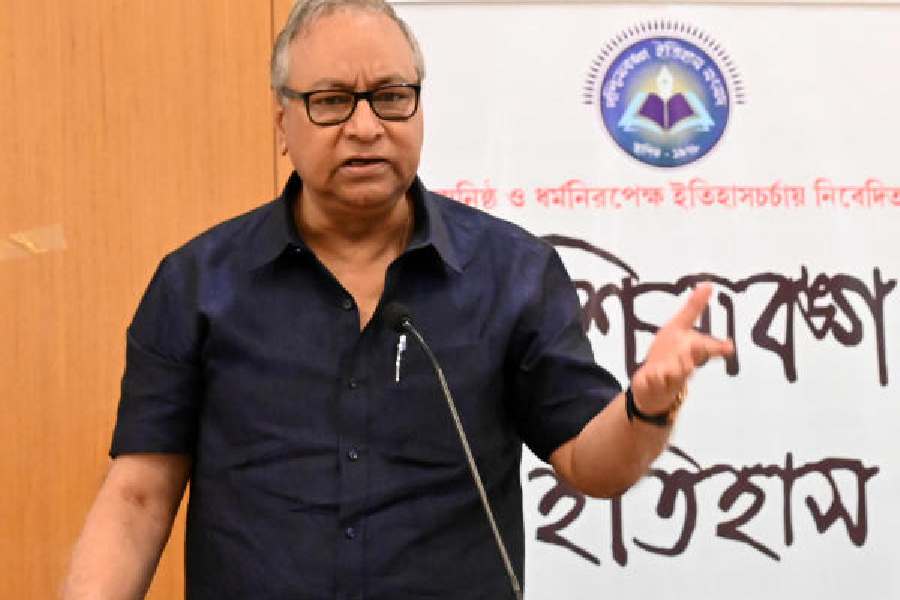History is habituated to bypass those who create history.
If this age-old saying is true for any politician in Bengal, the first name that comes to mind is that of A.K. Fazlul Huq, often referred to by historians as the man who played the most important role in settling the destiny of this sub-continent.
“But our knowledge about him is limited.... There has not been any proper assessment of this man, who refused knighthood at least thrice. On his 150th birth anniversary, I think there should be a reassessment of his contributions,” said Jawhar Sircar, Trinamul Rajya Sabha member and a prominent public intellectual, on Friday.
The former secretary to the government of India in the culture ministry was delivering this year’s Susobhan Chandra Sarkar Memorial Lecture, jointly organised by the department of history, Presidency University, and Paschim Banga Itihas Samsad.
Founded in 1978, the Samsad is one of the largest regional associations of professional historians and history-minded people in Bengal. On Friday, Sircar delivered the 27th edition of the lecture, instituted in memory of one of the most distinguished professors of history in the 20th century, on Huq, who was popularly known as Sher-e-Bangla (Lion of Bengal).
Sircar began his speech by giving anecdotal evidence of limited knowledge on Huq, who served as the first and the longest premier of Bengal during the British Raj, between 1936 and 1943, after the passage of the Government of India Act, 1935, in the British Parliament. The Act granted provincial autonomy to India and elections were held across India.
Historians often talk about Huq’s contribution to creating a unique Bengali Muslim identity and emancipating Bengali Muslims with his efforts to ensure education for them — which together played a role in creating a precondition for the language movement that finally led to the creation of Bangladesh. But he is forgotten even in Bangladesh.
“There are barely 40 to 42 books on him.... And there are at least 5,000 books on Mujibur Rahman,” said Sircar while stressing the need for more academic research on Huq,
who was a bright student of the erstwhile Presidency College.
During his 85-minute address which was delivered in a story-telling style on the Presidency University campus, Sircar mentioned how Huq, born in a rural family in Barisal in today’s Bangladesh, had come to Calcutta, acquired higher education and become one of the favourite students of Acharya Prafulla Chandra Ray before assuming the role of one of the most important political figures in the region.
“Doesn’t he deserve more space in our memories?” asked Sircar, referring to Huq as the first prominent leader in the freedom struggle, who was not a barrister.
Unlike the other prominent Muslim leaders in that era, like Huseyn Shaheed Suhrawardy and Khawaja Nazimuddin
who came from elite backgrounds, Huq had a humble background and had a special place for farmers, subjects and fishermen.
“Other Muslim leaders were products of privileges.... He was a commoner and had a special connect with people,” said Sircar, referring to the rural connect of Huq, who had floated Krishak Praja Party (KPP).
Sircar explained how Huq had waged a class struggle in Bengal by trying to push land reforms and also reduce the indebtedness of millions of farmers, who were subjected to tenancy under the Permanent Settlement Act.
The pre-independence history is replete with examples that bear proof that Huq had problems reconciling with the Muslim League’s aggressive communal stances and he had fallouts with Muhammad Ali Jinnah.











